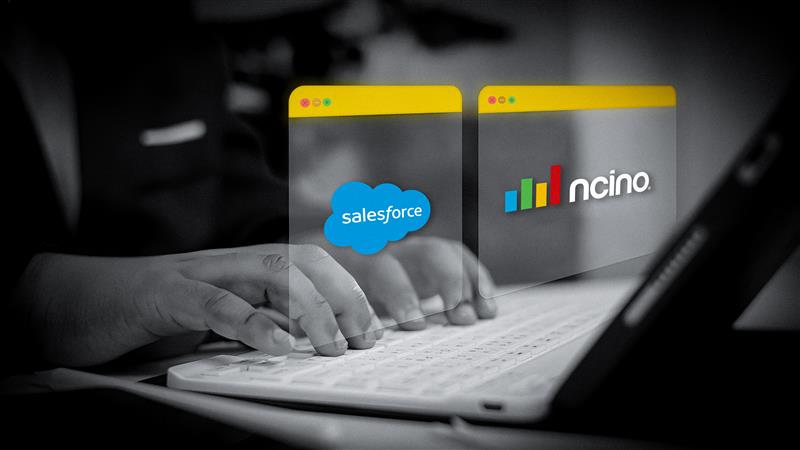What are Diversity, Equity and inclusion
Diversity, Equity, and Inclusion (DEI) in recruitment are crucial for creating a fair, welcoming, and representative workplace.
Diversity involves actively seeking candidates from various backgrounds, experiences, and identities, ensuring a wide range of perspectives.
Equity focuses on fairness in the hiring process, removing biases and providing equal opportunities for all candidates, regardless of their background.
Inclusion ensures that all candidates feel respected throughout the recruitment process. It also makes sure they feel valued. This fosters a supportive environment where everyone can fully participate.
By integrating DEI principles into recruitment, organizations enhance innovation. They also boost employee engagement. Additionally, they attract top talent and strengthen their brand reputation.
Why Diversity, Equity and Inclusion matters
Diversity, Equity, and Inclusion (DEI) are critical components for building a thriving organization. They are also essential for creating a sustainable and forward-thinking company. These principles are not just about fulfilling ethical obligations; they are essential drivers of innovation, employee satisfaction, and long-term business success. Here’s why DEI matters in detail:
1. Diversity: Fueling Innovation and Creativity
Diversity refers to the presence of differences within a group. These differences include race, ethnicity, gender, age, and sexual orientation. They also encompass disability, socioeconomic background, and more. When organizations embrace diversity, they bring together people with a wide range of experiences, perspectives, and ideas.
This variety of viewpoints is a powerful driver of innovation and creativity. Diverse teams are better equipped to approach problems from multiple angles. This leads to unique solutions and ideas. These solutions and ideas may not arise in more homogenous groups.
For instance, a team with diverse cultural backgrounds can more effectively create products and services that resonate with a global audience. In today’s fast-paced business environment, innovation is key to staying competitive. Diversity can give companies the edge they need. This edge helps them lead in their industry.
2. Equity: Ensuring Fairness and Equal Opportunity
Equity in the workplace is about fairness. It ensures that everyone has access to the same opportunities and resources. This applies regardless of their background or identity. It provides the necessary support for all individuals to succeed. This includes addressing systemic barriers that might disadvantage certain groups. It also involves implementing policies that promote fair treatment. These policies ensure equal access to opportunities.
For example, equity might involve creating mentorship programs for underrepresented employees. These programs ensure that everyone has the guidance they need. They also provide support to help employees advance in their careers.
It might also mean adjusting recruitment and promotion practices to eliminate biases that could unfairly impact certain groups. By fostering an equitable environment, organizations promote justice. They also unlock the full potential of all their employees. This leads to better performance and retention.
3. Inclusion: Fostering a Sense of Belonging
Inclusion is the practice of ensuring that everyone feels valued and respected. It also ensures that everyone is able to contribute fully to the organization. Diversity brings different people into the organization. Equity ensures they have fair opportunities. Inclusion is about creating an environment where all individuals can thrive.
An inclusive workplace culture recognizes and values the unique contributions of each employee and encourages collaboration and open communication.
Inclusion is crucial for employee engagement and satisfaction. When employees feel included, they are more likely to be committed to their work. They also collaborate more effectively with their colleagues. Additionally, they tend to stay with the company longer.
Inclusion enhances an organization’s reputation. It makes the organization more attractive to top talent. These individuals seek a workplace where they can be themselves and be valued for their contributions.
4. Enhancing Organizational Performance
Organizations that prioritize DEI are better positioned to perform well in today’s complex and dynamic business environment. Studies have consistently shown that diverse and inclusive teams outperform their less diverse counterparts. They are more innovative, make better decisions, and are more effective at solving problems.
Additionally, companies that embrace DEI are more likely to attract top talent. They are also more likely to retain that talent. This is because employees increasingly seek employers who are committed to these values.
Moreover, DEI initiatives can lead to better customer insights and connections. A diverse workforce reflects the diversity of the market. This workforce is better equipped to understand customers’ needs.
It can also meet the needs of a wide range of customers. This alignment with customer diversity not only enhances brand reputation but also drives customer loyalty and business growth.
5. Aligning with Broader Social Values
In today’s world, consumers, investors, and other stakeholders increasingly expect companies to take a stand on social issues. This includes diversity, equity, and inclusion. Companies are expected to actively demonstrate their commitment to these values.
Companies that are seen as leaders in DEI are more likely to earn the trust of their customers. They also gain the loyalty of their communities. On the other hand, organizations that fail to prioritize DEI risk reputational damage, legal challenges, and loss of business.
By aligning with broader social values through DEI, companies demonstrate their commitment to making a positive impact on society. This not only enhances their brand reputation but also positions them as responsible corporate citizens. Such positioning can lead to stronger relationships with stakeholders. It can also contribute to a more resilient business.
Strategies for Building a Representative Workforce
1. Redefine Job Descriptions and Requirements:
To attract a diverse candidate pool, review and revise job descriptions to avoid deterring underrepresented groups. Focus on essential skills and qualifications, valuing diverse backgrounds and fresh perspectives.
Instead of strict experience requirements, emphasize the potential to bring new ideas. Ensure criteria are equitable, allowing all candidates to showcase their relevant skills and experiences fairly.
2. Implement Bias-Free Recruitment Processes:
Unconscious bias can exclude qualified candidates from underrepresented groups. To foster diversity, equity, and inclusion, implement bias-free recruitment practices.
One approach is to use blind screening. This method removes names, gender, and ethnicity from applications. Use AI tools to objectively rank candidates based on skills, ensuring every candidate has a fair, consistent, and impartial evaluation.
3. Expand Sourcing Channels:
To build a representative workforce, expand sourcing channels beyond traditional methods. Attend events focused on underrepresented groups. Engage with communities often missed by conventional recruitment. Partner with organizations and platforms like Stafide that connect with global diverse talent. This broad, equitable approach increases access to diverse candidates with unique perspectives.
4. Foster an Inclusive Interview Process:
Design the interview process to ensure all candidates feel comfortable, valued, and fairly assessed. Train interviewers on cultural competency, unconscious bias, and equity, and use clear, consistent evaluation criteria. Use diverse interview panels and offer accommodations for candidates with disabilities, ensuring the process is accessible and fair for everyone.
5. Promote Diversity, Equity, and Inclusion at All Levels:
Promote Diversity, Equity, and Inclusion (DEI) at all levels by setting clear goals. Provide ongoing training to support these objectives. Hold leadership accountable to ensure DEI initiatives are effectively implemented.
Foster an inclusive environment with mentorship programs and employee resource groups that support underrepresented groups. Ensure equitable access to opportunities for growth, creating a culture where everyone feels empowered to succeed.
The Role of Leadership in DEI
Leadership is crucial in driving Diversity, Equity, and Inclusion (DEI). Leaders must advocate for DEI, set measurable goals, allocate resources, and ensure fair distribution of opportunities. By prioritizing DEI, leaders reinforce that these values are central to the company’s mission. This approach fosters a culture where all employees feel valued and included. Consequently, it creates an environment in which everyone can thrive.
How to develop DEI strategy
Developing a DEI (Diversity, Equity, and Inclusion) strategy involves a systematic approach. This approach focuses on creating a more inclusive and equitable workplace. Start by assessing your organization’s current DEI status through surveys, audits, and feedback from employees. Identify areas for improvement and set clear, measurable goals that align with your company’s mission and values. Engage leadership and ensure their commitment to driving DEI initiatives.
Develop action plans that include policy changes, training programs, and recruitment strategies aimed at fostering diversity and inclusion. Allocate necessary resources, such as budgets and staff, and establish metrics to track progress. Regularly review and adjust your DEI strategy to address emerging challenges and ensure continuous improvement. Effective communication and transparency throughout the process are key to gaining buy-in. They also ensure the strategy’s success.
Importance of Diversity, Equity, and Inclusion (DEI)
The importance of Diversity, Equity, and Inclusion (DEI) in recruitment cannot be overstated. DEI plays a crucial role in shaping a fair workplace. It also fosters an innovative and thriving environment. DEI ensures that organizations actively seek and value diverse perspectives, leading to more creative problem-solving and better decision-making.
It creates a welcoming environment where everyone can fully participate. By prioritizing DEI in recruitment, organizations attract top talent from a wide range of backgrounds. This approach also enhances employee engagement and strengthens their brand reputation. Additionally, it positions organizations for long-term success in an increasingly diverse global market. Prioritizing DEI ensures a competitive edge and fosters a more inclusive workplace.
Conclusion
Embracing Diversity, Equity, and Inclusion (DEI) is essential for building innovative, thriving organizations. By eliminating bias, expanding sourcing channels, and fostering inclusivity, companies can create a representative workforce. Leadership is crucial in embedding DEI into the organization’s core, ensuring continuous assessment and committed action. A strong DEI strategy not only boosts performance but also positions companies as leaders in a socially conscious market, driving long-term growth and sustainability.
Stafide leverages its expertise to connect companies with the best talent, particularly in niche tech roles. Our commitment to Diversity, Equity, and Inclusion (DEI) goes beyond traditional recruitment practices. Through innovative recruitment strategies, such as bias-free screening and inclusive interviewing processes, Stafide helps companies not only find the right candidates but also build teams that are diverse, equitable, and inclusive.
Partner with Stafide to enhance your organization’s DEI efforts and ensure you’re attracting top tech talent who can drive innovation and growth.





